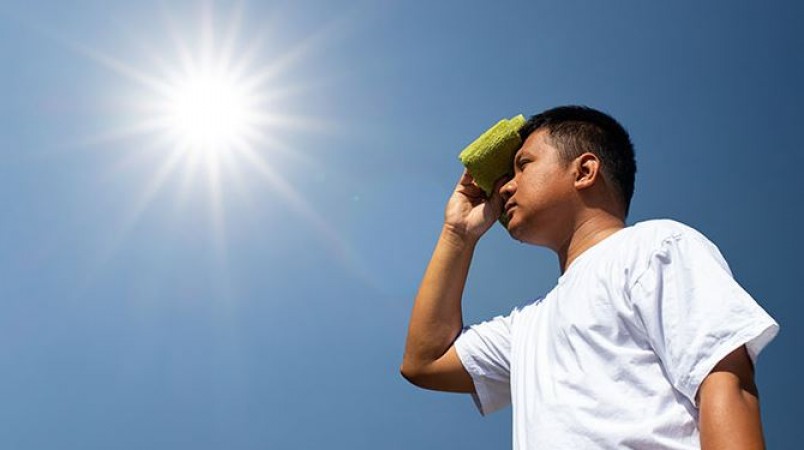
As India temperatures continue to rise, experiencing extreme heat has become a reality for many regions around the world. One particularly harsh benchmark is 50 degrees Celsius (122 degrees Fahrenheit). At this scorching temperature, the human body faces significant risks and challenges. Understanding these dangers and learning how to protect oneself is crucial for survival and health.
The Impact of 50 Degrees Celsius on the Human Body
Heat Stress and Heat Stroke: At 50 degrees Celsius, the body struggles to maintain its normal temperature of around 37 degrees Celsius. Prolonged exposure can lead to heat stress, and if not managed, it can progress to heat stroke—a life-threatening condition. Symptoms include confusion, fainting, seizures, and unconsciousness.
Dehydration: High temperatures accelerate the rate of sweating, leading to rapid fluid loss. Dehydration occurs when the body loses more water than it takes in, causing symptoms such as dizziness, dry mouth, and dark urine. Severe dehydration can result in kidney failure and other serious complications.
Cardiovascular Strain: The heart works harder to pump blood to the skin's surface to dissipate heat, increasing the risk of cardiovascular problems. This strain can be particularly dangerous for individuals with preexisting heart conditions.
Heat Exhaustion: This condition is characterized by heavy sweating, weakness, nausea, and headaches. Without prompt treatment, it can escalate to heat stroke.
Respiratory Issues: Extreme heat can exacerbate respiratory problems, especially for those with asthma or chronic obstructive pulmonary disease (COPD). The combination of heat and poor air quality can be particularly harmful.
Skin Damage: Prolonged exposure to intense heat can cause burns and increase the risk of skin cancer due to heightened UV radiation.
How to Keep Your Body Safe in Extreme Heat
Stay Hydrated: Drink plenty of water throughout the day. Avoid caffeinated and alcoholic beverages as they can increase dehydration. Electrolyte solutions can help replenish lost salts and minerals.
Seek Shade and Air Conditioning: Limit your time outdoors during peak heat hours (typically between 10 a.m. and 4 p.m.). Utilize air-conditioned spaces whenever possible. If air conditioning is not available, use fans and cool showers to lower your body temperature.
Wear Appropriate Clothing: Opt for lightweight, loose-fitting, and light-colored clothing. A wide-brimmed hat and sunglasses can provide additional protection from the sun.
Use Sunscreen: Apply a broad-spectrum sunscreen with an SPF of at least 30 to all exposed skin. Reapply every two hours, or more frequently if you are sweating or swimming.
Avoid Strenuous Activity: Postpone or limit activities that require significant physical exertion. If you must exercise, do so during the cooler parts of the day and take frequent breaks.
Recognize the Signs of Heat-Related Illnesses: Be aware of the symptoms of heat stress, heat exhaustion, and heat stroke. Seek immediate medical attention if you or someone else shows signs of heat stroke, such as confusion, loss of consciousness, or a lack of sweating despite the heat.
Create a Cool Environment at Home: Use blackout curtains or shades to block out the sun, and keep windows and doors closed during the hottest parts of the day. If possible, set up a cool room with a fan or portable air conditioner.
Check on Vulnerable Individuals: Ensure that elderly relatives, young children, and those with chronic illnesses have access to cool environments and adequate hydration. These groups are particularly susceptible to heat-related illnesses.
Stay Informed: Keep an eye on weather forecasts and heat advisories. Local news and weather apps can provide updates and alerts about extreme heat conditions.
Experiencing temperatures of 50 degrees Celsius can be daunting, but with the right precautions, you can protect yourself and others from the severe effects of extreme heat. Awareness and preparation are key to staying safe and healthy during these increasingly common heatwaves.